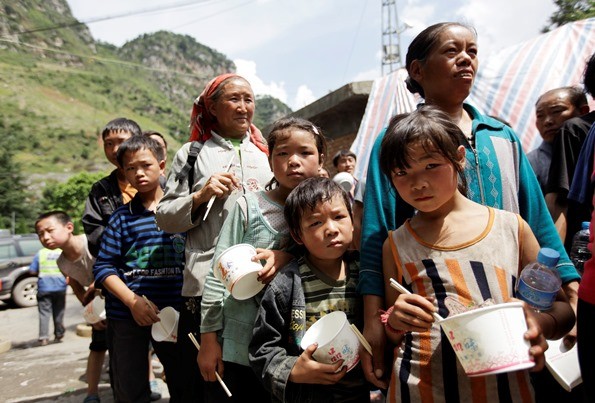On Jan. 9, an exhibit of woolen clothing knitted by the staff members for unfortunate children residing in the northwest China's Xinjiang Uyghur Autonomous Region was opened by the All-China Women's Federation (ACWF).
Approximately 260 woolen works were showcased, together with 10 pieces from ACWF sponsored by the Women's Foreign Language Publications of China. The project is part of the Heng'ai Campaign or "Everlasting Love Campaign."
ACWF launched its "Everlasting Love Campaign" in 2005 that aims to help disabled and orphaned children through distributing warm clothes. From then on, donations have been pouring in from families in Xinjiang. The ACWF also aims to further brace the relationship between the ethnic groups in China, promoting safety and stability in the country's northwest region, by supporting this charity project.
More than 200 staff from the ACWF were recruited by its Labor Union as well as the organization's subsidiaries to be part of it.
The garments exhibited were personally knitted by the organization's staff or family members. These include clothing, scarves, hats and gloves. Not all of them were highly skilled in knitting, yet all of them possess the heart of a volunteer.
Song Xiuyan, vice-president and first member of the Secretariat of the ACWF, chose a woolen hat and scarf for Su Jing, a staff member of The China National Children's Center (CNCC), to try on and interviewed the participants how they felt about knitting.
Su replied that it was her first time to try knitting and she was glad to donate her finished output to the children in Xinjiang.
Song gave her a compliment for Su's love and dedication in finishing the knitted products for the children.
Song openly shared her affection for the participants, emphasizing that knitting for the kids is a good avenue for family bonding and education.
"While knitting," Song said, "you can tell your children that in the remote region of Xinjiang, there are many children who live in poverty and that it is important for them to understand the importance of being compassionate and helpful to others."
A heart-touching moment was witnessed during the event when one of the participants wrote a card for the recipient children in Xinjiang and asked for a reply to her. Song was able to see the relevance of this event and asked for further support from the women's federations in Xinjiang to sustain this way of communication. Song advised them to distribute a blank card with the knitted clothing, for the children to have the chance to write back to them who gave them their new woolly gear.
Song was also able to relate love, affection and heart throughout this exhibit and the advocacy will help the children feel the warmth from the whole nation and instil the value of unity and harmony in their hearts. Hoping that when the children reach their adolescence they will be initiators of patriotism for their country and fellow men.
"We need to see the more profound significance of this exhibition beyond its knitting works," Song said. "You can contribute to regional and social stability by connecting with Uyghur families through woolen threads."
The exhibit was visited not just by the 60 staff members of the ACWF and Deng Li, member of the Secretariat of the organization.



























